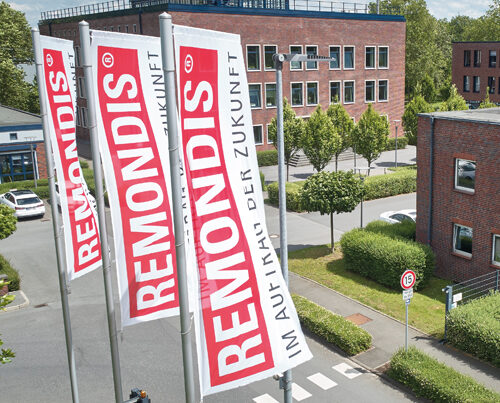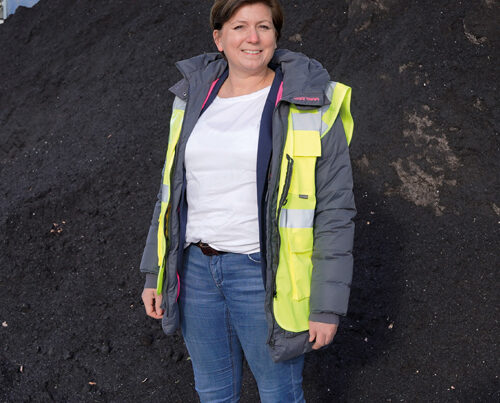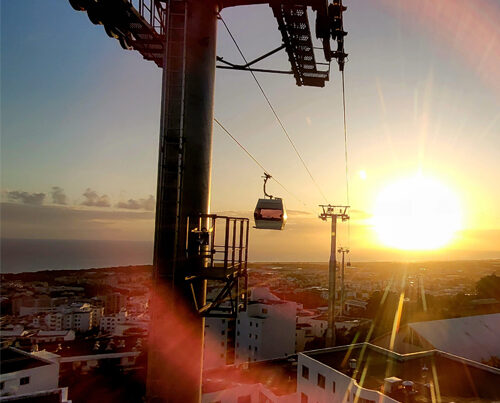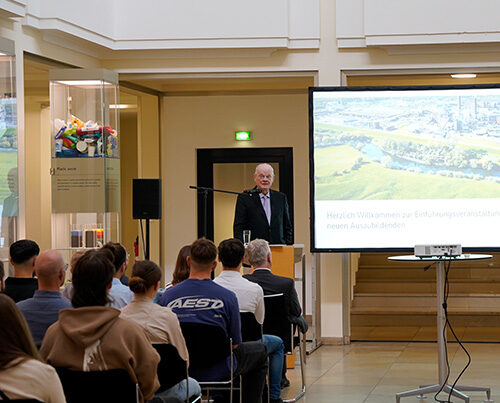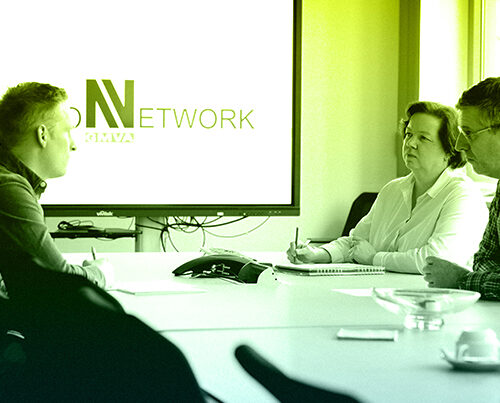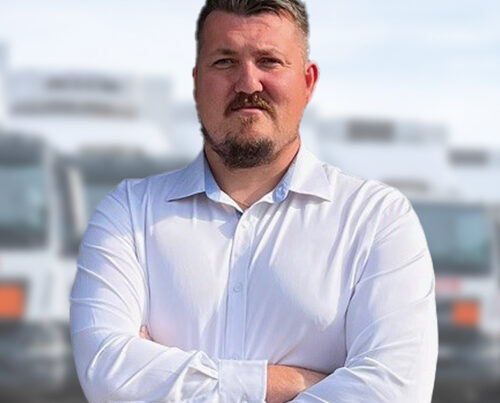Joel Zganiatz has always been ambitious and intends to carve out a successful career for himself. When this qualified industrial electronic engineer signed his apprenticeship contract in Oberhausen back in 2016, he certainly did not expect to be working as a workshop manager at GMVA Niederrhein at the age of just 26. This young man from the Lower Rhine region completed his apprenticeship in 2019 (his performance had been so good that he was able to finish the course earlier than originally planned) and was awarded his master craftsman certificate just three years later. To help make sure that Joel Zganiatz could prepare properly for his final exams at the Master Craftsman Academy in Düsseldorf, GMVA gave him six months off work and contributed towards the costs of his master craftsman course. That certainly made things much easier for him. Indeed, as far as this young master craftsman is concerned, he would very much like to spend many years working at GMVA – one of Germany’s largest WtE plants, which is partly owned by REMONDIS (49%).
He took a further step up the career ladder two years later when his then boss put his name forward as his successor and then handed over the baton to him when he retired. Joel Zganiatz was more than happy to accept the management team’s offer to take up the position of workshop manager on 01 March this year.
Besides taking on this new professional challenge, Zganiatz is also participating in the company’s in-house ‘future leadership programme’ that was launched by managing director Michaela Schröder at the end of 2023. Zganiatz is one of seven colleagues who successfully applied to take part in this pilot project. Lukas Brauner, Manuel Bauditz, Kim Philipp Hölzer, Timo Kraus, Joel Zganiatz and Justin-Pascal Koßmann are all between 24 and 38 years old and come from different business units, which are managed by technical managing director Frank Nachtsheim, who sees the junior staff concept as a good opportunity to bring junior staff into interdisciplinary dialogue and open up a wide range of further development potential for them. GMVA launched this programme to counteract the current skills shortage and aims to train and promote a selection of its promising employees so that they stay at the company. These members of staff should then be offered alternative exciting jobs and given the opportunity to take on vacant managerial positions when older employees retire. Everyone benefits from this programme: “We want to give our young staff an incentive to further their career. This not only motivates them but also helps create a strong bond between them and the company,” Michaela Schröder explained. An opportunity that will make GMVA an attractive employer for young professionals. At the same time, the management team is hoping that this programme will create new momentum for the company “as we open up to the outside world and think outside the box.” In concrete terms, this means that those participating in the project will not only be taking part in in-house workshops and carrying out specific tasks but also networking with other companies and organisations to bring new ideas to the table and drive forward the development of the business.
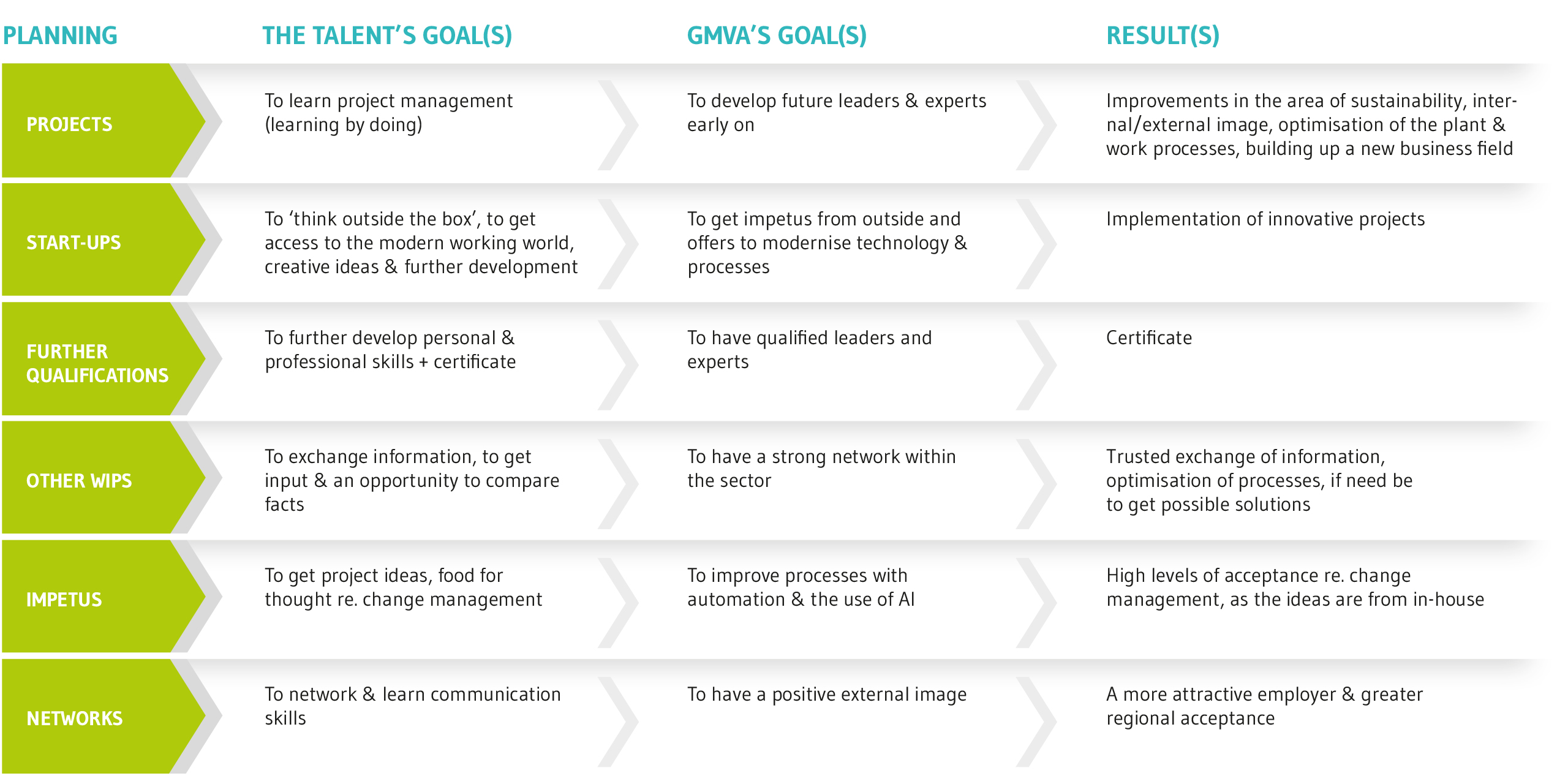
Recruiting and developing employees
According to managing director Michaela Schröder, long-term staff retention is key for the future of the company – and this is particularly true for the plant’s technical department. Such businesses are rarely successful at finding qualified power plant operators or master power plant operators willing to join their workforce. This means that the plants must train and further train their own production staff. Even though the high level of automation at such facilities means that malfunctions and breakdowns are the exception nowadays, the plant’s operations are still a complex process that can only be understood and handled by people with the right training and professional experience. In other words, people who have taken part in long apprenticeship and training courses and worked at the plant for many years.
The programme is open to everyone
All employees can apply to take part in this ‘future leadership programme’, which lasts three years. Indeed, it was very important to Michaela Schröder that there are no age limits and that people who have been working at the plant for many years should also be given the chance to take part in this programme. The seven participants meet every Friday (‘project day’) when they are trained by two experienced coaches. They also set the individual project remits together. These may focus on subjects such as sustainability, the company’s internal and external image or other questions, such as how work processes and the plant can be optimised and new fields of business set up. At the same time, those participating learn the fundamentals of project management and practise carrying out key project management and implementation tasks themselves.
“We’ve made it clear that we want them to put forward their own ideas,” said managing director Michaela Schröder, who is responsible for the strategy. With a degree in economics and a strong network of contacts herself, she believes it is important that the project participants bring in ideas from outside the company to drive forward the business. For example from the Startplatz Business Club, a start-up network based in Cologne and Düsseldorf and the largest in the German state of North Rhine-Westphalia. GMVA is now a new member of this business club.

“We will be presenting our company and our business goals here in the future. I can well imagine that having regular contact with start-ups will help us to come up with new ideas to develop our own business. Taking a look at other areas will help us to widen our horizon,” commented 55-year-old André Pazuk, one of the two coaches leading the ‘future leadership programme’. A maintenance division manager, he has worked at GMVA for many years and played a key role in developing the measures required for the first project. The team’s first task was to develop a professional camera system for the waste incineration furnace. “Thanks to this camera, we can now pick up on any small changes immediately,” Pazuk concluded.
André Pazuk, Head of Maintenance (left), and Carsten Prost, Deputy Head of Maintenance
Three shareholders – one goal
GMVA was in public hands until 2001. Since then, the plant has been operated as a Public-Private Partnership (PPP). It is owned by the City of Oberhausen (via the shareholder STOAG), the City of Duisburg (via the shareholder Wirtschaftsbetriebe Duisburg – AöR) and the circular economy business REMONDIS. By contributing its waste management expertise, REMONDIS plays a key role in ensuring the plant’s operations remain cost-effective, safe and efficient.
Electricity from renewable sources
Germany has the highest recycling standards in place. Despite this, the country still generates huge volumes of waste that cannot be recycled for reuse. Sending such materials for incineration is a sensible and environmentally friendly solution as the plant’s operations produce electricity, primarily from renewable sources – which means it also contributes towards the energy transition. By thermally treating waste, GMVA is able to generate enough electricity to cover the energy requirements of around 100,000 homes in Oberhausen. Furthermore, GMVA’s combined heat and power system enables it to supply a significant amount of district heat for the City of Oberhausen’s district heat network.
‘Future leadership programme’ participants
André Pazuk, maintenance division manager and coach:
“I’ve worked at GVMA for decades and love the informal way employees work together here. I’m really pleased to be part of this programme as a coach and to be able to help my colleagues further their careers.”
Michaela Schröder, managing director of GMVA and the person responsible for the strategy:
“The ‘future leadership programme’ is a good opportunity to promote young talent from our own ranks. These future specialists and managers will have a much bigger network of contacts and their work will be far more digital than it is now. They themselves will bring momentum and creative ideas to the table and then develop them together with their colleagues as a team. This makes new ideas more acceptable, encourages collaboration and, ultimately, also helps us to find new employees for our company.”
Joel Zganiatz, workshop manager and a participant of the programme:
“I’m planning to make a career for myself here at GMVA, nowhere else. The work atmosphere is super and I am always encouraged to do more.”
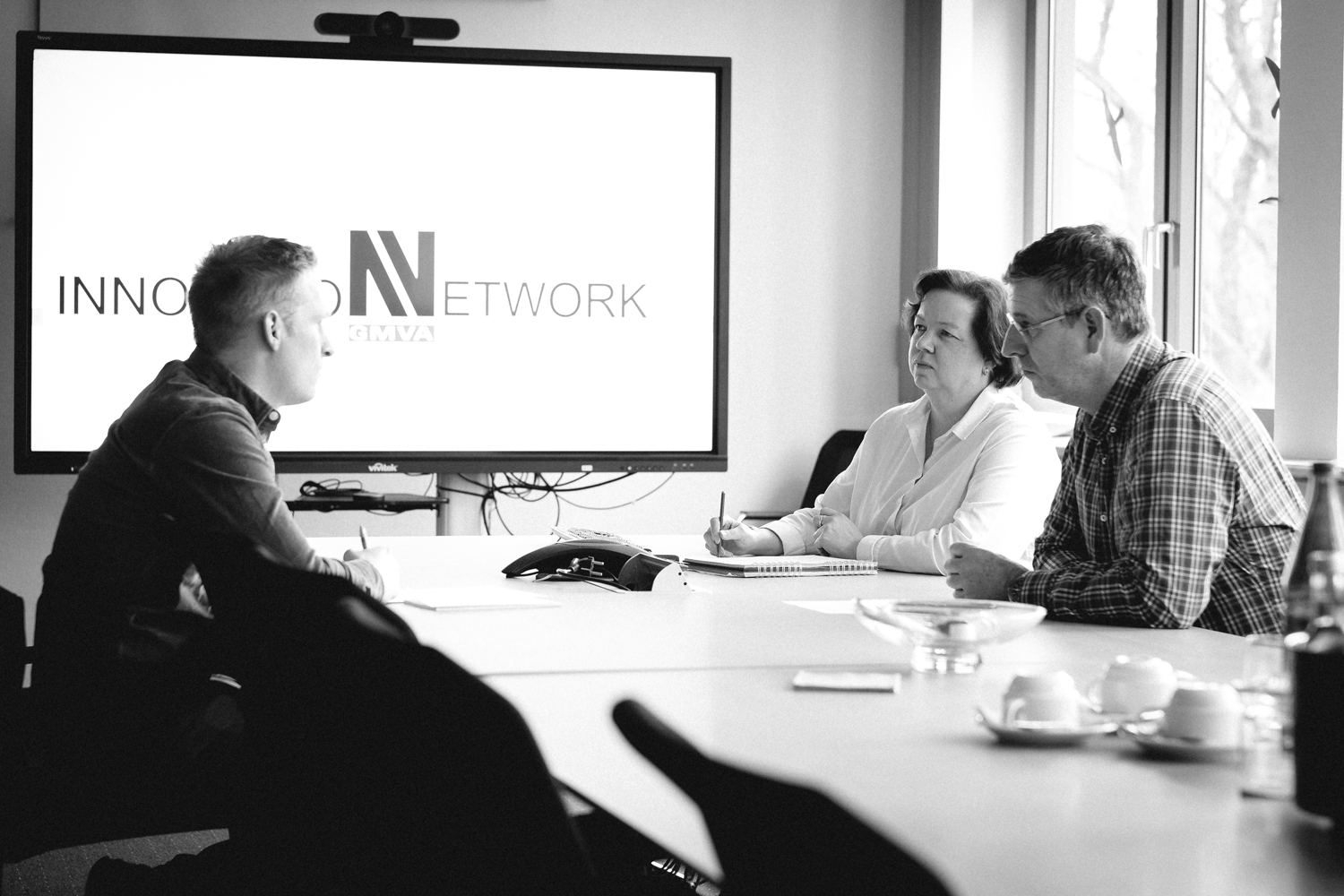
Michaela Schröder and Frank Nachtsheim together with the two coaches are the steering team responsible for coordinating how the company’s young talent is developed and promoted
Image credits: © GMVA







